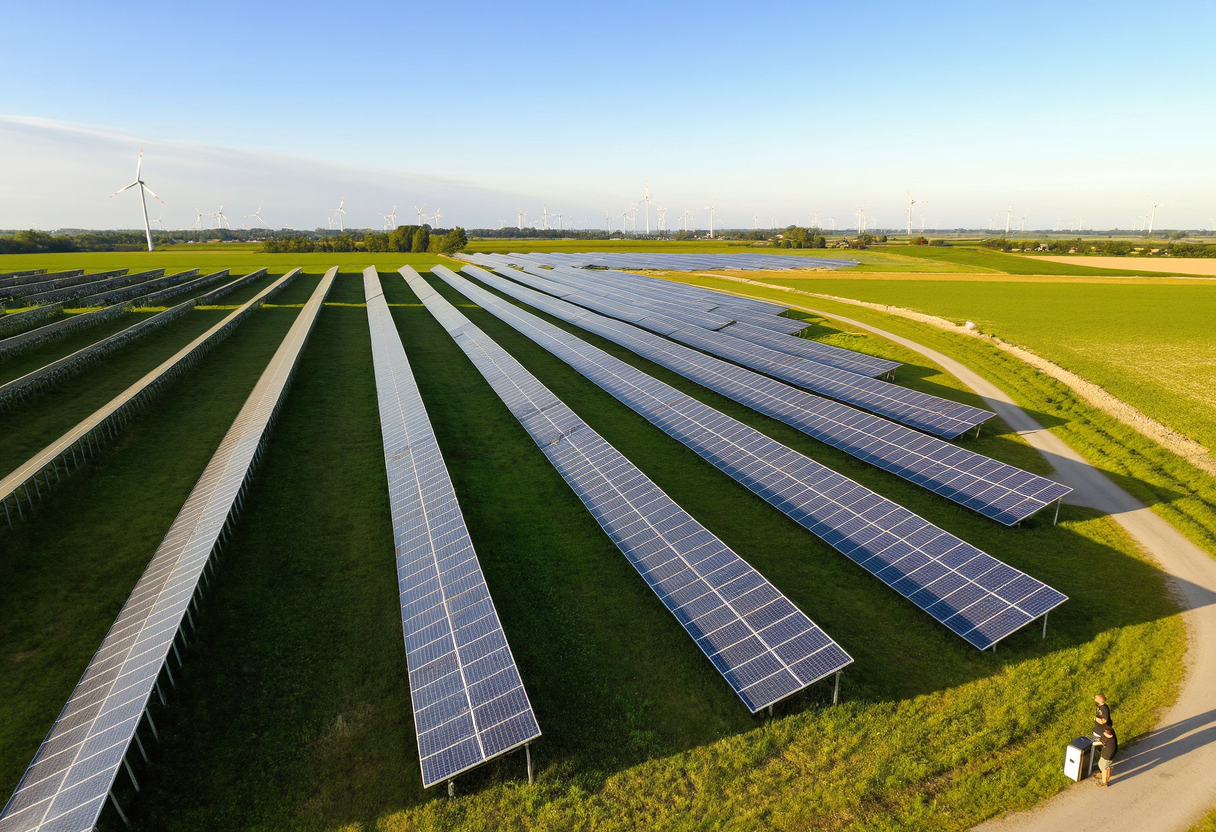Beyond the Roof: Exploring the Versatility of Solar Panels
Solar panels have evolved beyond traditional rooftops to find diverse applications worldwide. This article examines the innovative uses of solar panels and their integration into various industries and everyday life. From solar-powered gadgets to solar farms, discover how solar panels can be adapted to meet modern energy needs.
Innovative Applications of Solar Panels
Today, solar panels are making their mark far beyond rooftops. Various industries have begun exploring innovative applications of solar panels to harness the sun's energy effectively. From urban agriculture utilizing solar technology for greenhouse heating to solar-powered water purifying systems, the possibilities are endless. These applications not only highlight the versatility of solar panels but also solve real-world problems by providing sustainable energy solutions. Importantly, solar panel technologies have been integrated into transportation, with solar-powered vehicles taking the spotlight in green technology discussions. Various companies are investing resources into developing vehicles that incorporate solar panels for auxiliary power, thereby reducing dependency on traditional fuels. Such innovative approaches underscore solar panels' role in a diversified and sustainable energy future.
Solar Farms: A Sustainable Energy Solution
Solar farms represent one of the most prominent uses of solar panels in today’s energy landscape. These large-scale solar installations convert sunlight into electricity accumulated for local or grid use. With the global push for renewable energy sources, solar farms are gaining traction as a practical solution for sustainable energy production. Investments are flowing into the development of solar farms, driven by declining costs and a rising commitment to meeting energy demands sustainably. The operation of solar farms not only provides clean energy but also creates job opportunities and stimulates local economies. Stakeholder engagement is crucial in solar farm development, ensuring land use aligns with community goals. As research continues to improve the efficiency and output of solar farms, these installations will play an integral role in the energy ecosystem.
Decentralized Energy Systems Powered by Solar Panels
The advent of decentralized energy systems has been significantly bolstered by the rise of solar panels. These systems allow energy production and consumption to occur at the local level, promoting self-sufficiency. By generating electricity through solar panels, communities can reduce dependence on centralized power sources, resulting in increased energy resilience. For instance, many remote areas have successfully implemented solar microgrids to provide reliable energy to its inhabitants. The increased accessibility of solar technology has made it an attractive option for diverse communities, especially in the developing world. Such systems encourage innovation in energy management, empowering local residents to shape their energy futures. The trend toward decentralized energy systems marks a paradigm shift in how we perceive energy generation and consumption.
Solar Panels in Everyday Life
Solar panels are increasingly permeating everyday life, transforming routine tasks into sustainable activities. From solar-powered garden lights to charging stations for electronic devices, the integration of solar technology has become widespread. These applications offer solutions that reduce energy costs and contribute positively to environmental preservation. Notably, portable solar panels enable users to harness energy in remote locations, ideal for camping and outdoor activities. The convenience of solar technology has prompted a surge in consumer interest, making solar panels more accessible than ever. Educational campaigns promoting the benefits of solar energy are shaping consumer behaviors, leading to a significant uptick in household installations. As more people embrace solar technology, the trajectory of energy consumption is changing dramatically.
Identifying Barriers to Solar Panel Adoption
While the advantages of solar panels are plentiful, understanding the barriers to widespread adoption is crucial. Common obstacles include misconceptions surrounding the efficiency and durability of solar technology. Additionally, high upfront costs and lack of access to financing can dissuade potential users from making the switch. Regulatory challenges often emerge as significant hurdles, particularly in regions with unclear policies regarding solar energy adoption. Addressing these barriers requires comprehensive education and awareness programs tailored to the unique needs of each community. By demystifying solar technology and providing financial resources, potential users can be encouraged to transition to solar panels. Collective efforts from governments, businesses, and educational institutions are essential to overcome these obstacles and facilitate broader adoption.
Vision for the Future: Expanding the Reach of Solar Panels
The future of solar panels is teeming with possibilities. As technology continues to evolve, innovative applications are expected to proliferate across various sectors, enhancing energy efficiency and sustainability. Continuous research into improving solar panel materials and efficiencies promises to make solar energy even more accessible. In addition, educational institutions are poised to play a vital role in integrating solar technology into their curriculums, preparing future generations to be stewards of renewable energy. The integration of solar panels into smart city initiatives will further amplify their benefits. Overall, the vision for the future emphasizes a global commitment to expanding solar panel adoption, leading to a cleaner, more sustainable planet for all.
seo_configs
